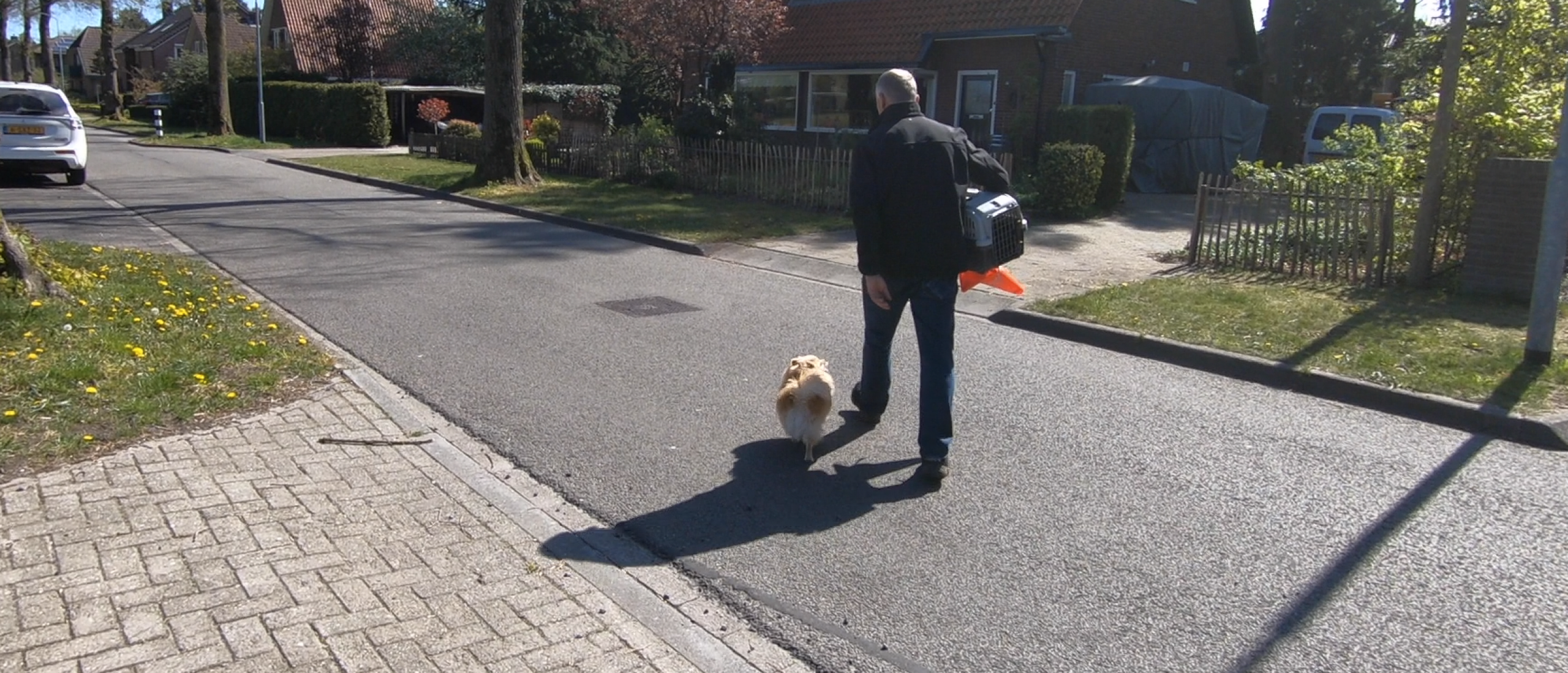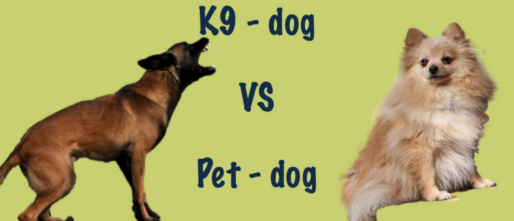Provide clarity with the dog from day one
Correcting a dog is often a sensitive subject. There are people who do not want to correct their dog at all and there are also examples where a dog is corrected too much. In our system we train positively, yet we also use corrections. This does not mean that we hit or kick our dogs, but we do make it clear to them what is desired and undesired behavior. Doing this clearly from the beginning will have a positive impact on your dog's life.
Just like in the life of a human being, a dog has to discover and learn everything. A dog that is not taught this can end up in dangerous situations for himself or for another person. Think for example of a dog that suddenly runs away while walking, crosses a road and gets under a car, or a dog that wants to eat all kinds of things from the street that could make him sick. Or a dog that wants to attack other dogs or cats while walking.
But should you punish a dog immediately when he does something wrong for the first time? Certainly not! You cannot punish a dog for something he does not know yet. From day one that a dog is with us we are immediately clear about what is desired and what is undesired behavior. We first teach the dog the meaning of "good boy/girl" and "no", with this we can "talk" to the dog and make it clear what is and is not allowed.
Build the corrections in a fair way
For example, if we want to teach a puppy that he is not allowed to chase the chickens in our yard, we naturally don't let him run loose right away. Almost every dog will then try to catch the chickens because this is natural behavior. We then walk with the dog on a retractable leash at a suitable distance along the chickens. At the moment the dog reacts in a wrong way to the chickens he will hear the word "no" as a correction. If he still reacts to the chickens by, for example, running after them, we can combine this with a small tug on the leash as an extra correction. The moment the dog no longer pays attention to the chickens, he immediately hears "good boy/girl" as a sign that the boss is satisfied with that behavior. But no further reward is given for not chasing the chickens. This is to prevent that we teach the puppy to show unwanted behavior and then be rewarded for it.
If we were to severely correct the dog the first time he reacts to the chickens, it is unfair. This is because the dog does not yet know that he is not allowed to go to the chickens. If we then correct him heavily, this will cause stress and fear in the dog and he will experience the chickens as something negative. By building up distance and linking it to something positive, the dog will no longer be preoccupied with the chickens. The chickens are no longer a distraction for the dog and he will no longer pay attention to them. As a result, we can train the dog in the presence of the chickens and the dog can play freely in the garden while the chickens are also on the loose. In fact, we are sure that the dog will no longer try to catch the chickens.
In this video you can see the build-up with the chickens. Eventually, this dog can just be trained among the chickens.
A dog that knows what he may and may not have all freedom
Yet there are also people who, for whatever reason, never want to correct their dog. We will never tell these people to correct their dog, but we will explain to them why this has a positive influence on the dog's life. A dog that knows what it can and cannot do and listens to this will be able to run free everywhere. As the boss we do not have to be afraid that the dog will suddenly be distracted and run away.
Our dogs run (where allowed) together without a leash in the woods. This is only possible because we have taught them all in the beginning that it is not allowed to chase rabbits or other game. We also taught them that they are not allowed to eat from the ground of for example (rabbit) poop or other things. This prevents dangerous situations where the dog is suddenly distracted and will run after an animal, with the result that he crosses a road and gets hit by a car. Or that he eats wrong things from the ground that can make him sick.
So it is better to do correct a dog early in life, than not to do so. If we had not taught this to our dogs, with the corrections "no" and a line correction, we would never be able to let our dogs run free in the woods. In fact, we would always have to be on guard for unexpected situations, where the dogs would suddenly become distracted and want to run away.
In this video you will see 4 of our dogs running and playing freely in the woods.
People who do not correct their dogs who cannot give their dogs this freedom. They should always walk their dog in an enclosed area, or keep their dog on a leash. If they do not, they bring their dog and possibly another in danger. Because the dog could suddenly run off when distracted and also not listen to the boss, because the dog has never been taught to listen. So the dog has its whole life hampered by the fact that it must always be on a leash in situations where the boss might not be in control.
So we believe that for the good of the dog, it is better to correct him. Danger in the video below is a good example. Danger also had an interest in the chickens and other things like birds and cats early in his life. Because we taught Danger that this was not allowed, it is now gone from Danger's life. He can now run and play freely in our yard without paying attention to the chickens. Danger can also run loose while walking because he is no longer preoccupied with other temptations and we never have to worry about him suddenly running away.





